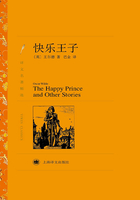It was understood that the main object of my trip to England was to find out whether the British people have any sense of humour.
No doubt the Geographical Society had this investigation in mind in not paying my expenses. Certainly on my return I was at once assailed with the question on all sides, "Have they got a sense of humour? Even if it is only a rudimentary sense, have they got it or have they not?" I propose therefore to address myself to the answer to this question.
A peculiar interest always attaches to humour. There is no quality of the human mind about which its possessor is more sensitive than the sense of humour. A man will freely confess that he has no ear for music, or no taste for fiction, or even no interest in religion. But I have yet to see the man who announces that he has no sense of humour. In point of fact, every man is apt to think himself possessed of an exceptional gift in this direction, and that even if his humour does not express itself in the power either to make a joke or to laugh at one, it none the less consists in a peculiar insight or inner light superior to that of other people.
The same thing is true of nations. Each thinks its own humour of an entirely superior kind, and either refuses to admit, or admits reluctantly, the humorous quality of other peoples. The Englishman may credit the Frenchman with a certain light effervescence of mind which he neither emulates nor envies; the Frenchman may acknowledge that English literature shows here and there a sort of heavy playfulness; but neither of them would consider that the humour of the other nation could stand a moment's comparison with his own.
Yet, oddly enough, American humour stands as a conspicuous exception to this general rule. A certain vogue clings to it. Ever since the spacious days of Artemus Ward and Mark Twain it has enjoyed an extraordinary reputation, and this not only on our own continent, but in England. It was in a sense the English who "discovered" Mark Twain; I mean it was they who first clearly recognised him as a man of letters of the foremost rank, at a time when academic Boston still tried to explain him away as a mere comic man of the West.
In the same way Artemus Ward is still held in affectionate remembrance in London, and, of the later generation, Mr. Dooley at least is a household word.
This is so much the case that a sort of legend has grown around American humour. It is presumed to be a superior article and to enjoy the same kind of pre-eminence as French cooking, the Russian ballet, and Italian organ grinding. With this goes the converse supposition that the British people are inferior in humour, that a joke reaches them only with great difficulty, and that a British audience listens to humour in gloomy and unintelligent silence.
Peoplc still love to repeat the famous story of how John Bright listened attentively to Artemus Ward's lecture in London and then said, gravely, that he "doubted many of the young man's statements"; and readers still remember Mark Twain's famous parody of the discussion of his book by a wooden-headed reviewer of an English review.
But the legend in reality is only a legend. If the English are inferior to Americans in humour, I, for one, am at a loss to see where it comes in. If there is anything on our continent superior in humour to Punch I should like to see it. If we have any more humorous writers in our midst than E. V. Lucas and Charles Graves and Owen Seaman I should like to read what they write; and if there is any audience capable of more laughter and more generous appreciation than an audience in London, or Bristol, or Aberdeen, I should like to lecture to it.
During my voyage of discovery in Great Britain I had very exceptional opportunities for testing the truth of these comparisons. It was my good fortune to appear as an avowed humourist in all the great British cities. I lectured as far north as Aberdeen and as far south as Brighton and Bournemouth; I travelled eastward to Ipswich and westward into Wales. I spoke on serious subjects, but with a joke or two in loco, at the universities, at business gatherings, and at London dinners; I watched, lost in admiration, the inspired merriment of the Savages of Adelphi Terrace, and in my moments of leisure I
observed, with a scientific eye, the gaieties of the London revues.
As a result of which I say with conviction that, speaking by and large, the two communities are on the same level. A Harvard audience, as I have reason gratefully to acknowledge, is wonderful. But an Oxford audience is just as good. A gathering of business men in a textile town in the Midlands is just as heavy as a gathering of business men in Decatur, Indiana, but no heavier; and an audience of English schoolboys as at Rugby or at Clifton is capable of a wild and sustained merriment not to be outdone from Halifax to Los Angeles.















